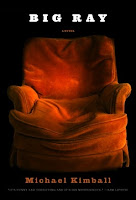In the ever changing world of publishing, authors are still trying to navigate their way through the wars over print vs. digital and traditional vs. self published books.
Self published author Steve Piacente, whose upcoming novel Bootlicker (prequel to his 2010 release Bella) drops this month, has strapped on his helmet and laced up his boots to fight the good fight for some good ole "indie" recognition. What he's written here demonstrates just how steep his own personal up-hill battle is.
He discusses pushback from local papers, the stigma that still follows the self published around, and the opportunities technology has offered writers....
Your book is the wrong color. Keep it out of my neighborhood.
Okay, the rejection wasn’t quite that harsh, but the message was the same. Mainstream newspapers – even struggling, mid-sized papers - look at Indie authors the way cool girls look at members of the badminton club. You’re nice, but really …”
This was different, I thought, because I had been the newspaper’s D.C. reporter for a decade. They knew I wasn’t a hack. And, honestly, I didn’t want special treatment, only a look, and figured my time at the Charleston, S.C. paper would get my self-published novel into the hands of the book editor.
The book did reach the editor, who informed me that the newspaper:
- Will not consider paperbacks, eBooks, self-published, textbooks, or kids’ books.
- Only publishes 325 reviews a year, and there are 60,000 hardcovers from “legitimate” publishers released in the U.S. alone each year, plus 250,000 paperbacks.
NOTHING PERSONAL, BUT …
The paper’s reviewers are unpaid volunteers who insist on “legit” hardcovers. The editor said this was not meant to disparage any particular book, but – let’s face it – self-publishing has tended to produce books of “grossly inferior literary quality.”
Imagine if we used such a yardstick, say a scorecard on Congress, to judge politicians.
He added that no book review editor he knew would consider novels by Indie authors. Part of it has to do with dwindling resources at most newspapers. Most of it has to do with lousy books. The only time mainstream papers perk up is when a success story forces them to pay attention, like this one from The Wall Street Journal.
OLD WAYS HAVE GOTTEN RUSTY
I say technology has changed the world, and newspapers clearly haven’t kept pace. The situation in Charleston is not unique. Newspapers everywhere are in trouble, which is why it strikes me as odd that management would cling so hard to old ways that clearly aren’t working.
As Charleston struggles to do more with less, the paper is still being deluged by major publishing houses and their authors. That makes it even easier for reviewers and newspaper execs to dismiss Indie authors.
Declaring every such writer undeserving seems unjust, especially when this sentiment comes from folks who are supposed to help separate worthy from unworthy, whether it’s books, politicians or pro athletes. Take a peek at the Journalists’ Code of Ethics.
ANYONE STILL USING INK?
Back in the Dark Ages (meaning about five years ago), if you wanted to be an author, you’d write a book, cast around for an agent, and, if lucky, get one and sign with a big publisher. That’s how it worked – there was one key to the literary castle. If you didn’t get the key, all you got to write was graffiti on the vacant building in the alley. If you did land an agent, he or she would need snag a publisher. If not, story over.
Technology now provides a direct path to prospective readers. Screw the middleman. Tools like Facebook, Twitter and YouTube have enabled writers to find cover artists, illustrators, trailers, editors, web designers, and, most importantly, readers. Sure, we’d like a newspaper review, but that’s just one of many avenues. An entire culture of Indie reviewers is also rising up and getting noticed.
The trick is figuring out how to distinguish your work from the glut competing for people’s attention. It’s true that the good news is the same as the bad news – anyone can publish pretty much anything. My hope is that, as with any other product coming to market, the cream will rise.
As a former journalist, I like this. It’s got a democratic feel to it. There used to be a saying about not arguing with folks who bought ink by the barrel, meaning reporters always got the last word. Perhaps that day has passed. Is anyone still using ink?
Steve Piacente (@wordsprof) has been a professional writer since graduating from American University in 1976. In 2010, he self-published Bella, the story of a widow’s quest to uncover the truth about her husband’s death on an Afghan battlefield. The forthcoming Bootlicker is the prequel. Steve started as a sportswriter at the Naples Daily News, switched to news at the Lakeland Ledger, and returned to D.C. in 1985 as Correspondent for the Tampa Tribune. In 1989, the native New Yorker moved to the same position for the Charleston (SC) Post & Courier. He is now deputy communications director at a federal agency in Washington, D.C., and teaches journalism classes at American University.














































